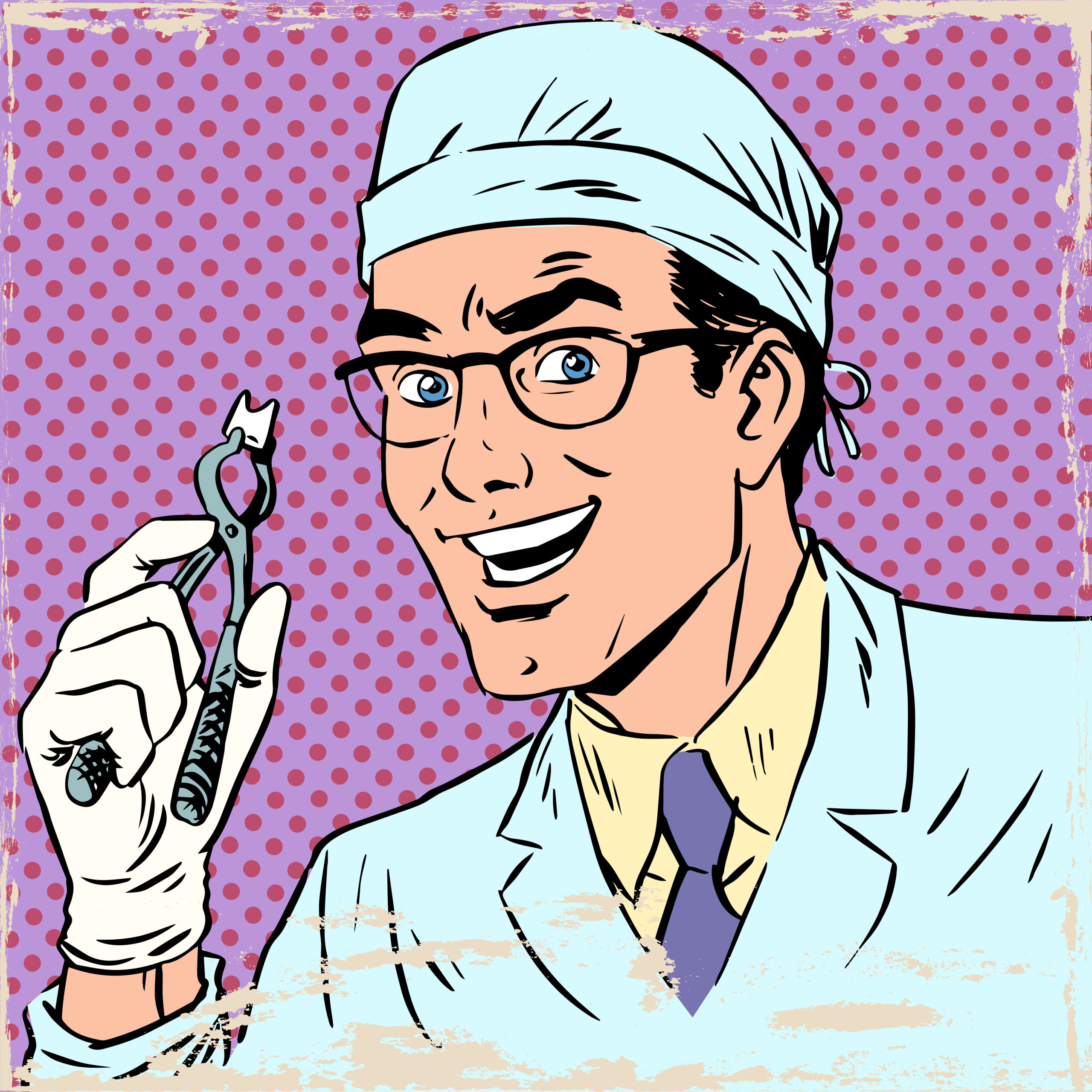It sure seems like it though I know there are notable exceptions. I’m talking about full time academics here of course – the ones at the residency programs day in, day out. The ones who residents have to listen to and have to agree with because their survival depends on it.
I think it would be interesting to survey all US Orthodontic Residents and have them rate their full time faculty on a sliding scale with one extreme being “rabidly anti-ext” and the other “rabidly pro-ext” with moderates in the middle. I have a fair idea what the results would look like and I’m sure you do too! Of course you could poll the faculty themselves but I don’t think you’d get the same results since we all tend see ourselves differently than we actually are. Residents know the faculty better than they know themselves however. They know what treatment plan to give depending on which teacher is asking the question… We all had to learn that skill to graduate!
I bring the extraction bias on the part of full time faculty up because of a blog post I read today. I read Kevin O’Brien’s Orthodontic Blog regularly and enjoy his insight but today he gave as clear an example of the general attitude of most full time academics when it comes to extraction/non-extraction as I’ve ever seen. You can read it here.
Having gone to a hard core “Tweed school” my training was basically, “when in doubt, extract teeth”. To the tweeters, extraction is the “conservative route” and non-extraction is “risky”. On top of that, I bought a practice that was as close to a traditional Tweed pracrice as one could find. The seller literally used a turret and 14 inch straight pieces of wire to make arch wires for his zero tip/zero torque appliances. He also took out teeth on darn near all of the 95 odd patients he started annually. You might have guessed by now that even though I can and have done it “old school” I don’t do it that way any more. I tell you all that to say this – being either Pro-extraction or Anti-extraction is a very bad idea. Instead we should all strive to be Pro-patient and Pro-outcome while understanding that we aren’t working on mannequins. Each patient is unique and should be treated as such. In that vein, here is the comment I made on Dr O’Brien’s Blog:
Dr O’Brien, If was not a practicing orthodontist who had to deal with real world factors like patient desires and general dentist input then I might think the same way you do. However, if there is “no difference” between extraction and non- extraction outcomes” but patients are generally against tooth removal (as are referring dentists) then doesn’t this study put all the nails in the coffin of extraction minded orthodontists and bury them? Are you suggesting that “quality treatment” involves headgear in extraction and non-extraction cases? It sure seems like it and I can tell you that won’t fly outside academia or a country where paternalism is still a thing.
I find it dangerous when academics hold out cephalometic evaluations of 63 cherry picked patients as “proof”, especially when that orthodontists has as much visibility as you do. Keep up the good work but please don’t forget that there are people attached to those teeth and those cephs represent a human being with a multitude of desires and varying levels of compliance. The orthodontist in private pracrice can’t retrospectively pick our patients! 🙂
The “extraction vs non-extraction debate” should rage in the mind of every orthodontist for each and every patient with the objective of giving our patients the best possible result within the boundaries the patient sets. It’s their head after all!
Ideal is dumb. Angle is dead. Tradition and “the way we have always done it” are irrelevant. Focus on the patient in front of you without prejudice or supposition and take care of them as you would treat your own family members and you’ll do great!


HI Ben, I agree with you, the extraction decision is individualised and should reflect the patients values, clinical experience and any good quality scientific evidence. One of the main problems that we are facing today is the “cook book” approach to only providing one form of treatment be it extraction or non-extraction. I suppose that this was the point I was trying to make
Fair enough. Thanks for clarifying Dr. O’Brien.